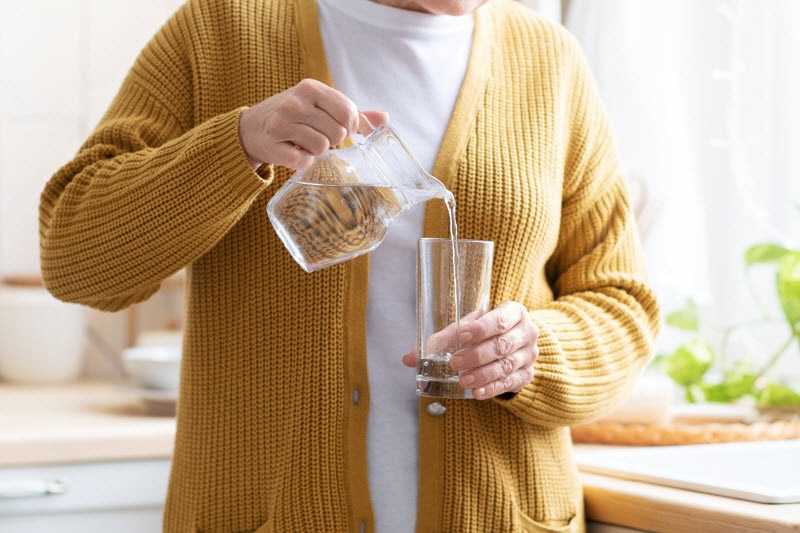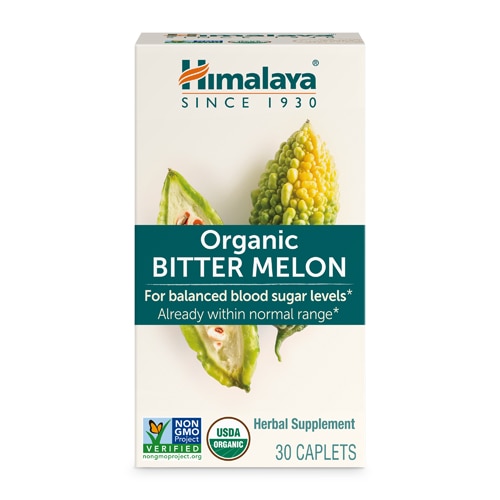[vc_row][vc_column][vc_column_text]Have you ever chugged a giant glass of water, only to feel thirsty again a few minutes later? Or maybe you're noticing more trips to the bathroom than usual? If these scenarios sound familiar to you, you're not alone. The simple symptom of feeling extra thirsty, a medical term called polydipsia, can be a clue to an underlying elevated blood sugar.
So, whether you are concerned about yourself or a loved one, grab your favorite beverage and get comfortable as we review the connection between diabetes and thirst.

Understanding diabetes and thirst
When
blood sugar levels in the body are elevated, the kidneys get overwhelmed and have to work extra hard to get rid of the excess sugar. The kidneys in turn will pull in more water from your blood and tissues to dilute the sugar and flush it out which results in frequent, excessive urination. The medical term for this is polyuria.
The sugar being pulled from your tissues and cells leaves you feeling extra thirsty, even after drinking water. This constant water loss creates an ongoing cycle. You drink to quench your thirst, but the extra fluids increase the polyuria, leading to dehydration and even more thirst. Think of it as trying to fill up a leaky bucket – no matter how much water you pour in, it just keeps draining away.
The next time you find yourself extremely thirsty and unable to quench your thirst, remember – it might be your body's way of telling you that something is wrong. It is always recommended to reach out to your healthcare provider if you experience persistent thirst along with other potential diabetes symptoms like frequent urination, fatigue and unexplained weight loss. If you already have a diabetes diagnosis, it might be time for a medication adjustment.
Recognizing the symptoms of dehydration
So we know that thirst can be a symptom of elevated blood sugar, but how can you tell if you are actually dehydrated? Common
symptoms of dehydration include thirst, dry mouth, chapped lips, fatigue, muscle cramps, dark colored urine, headache and dizziness.
Ignoring these symptoms can lead to very serious complications such as overheating, kidney failure and even seizures. If you suspect you might be dehydrated, the best thing to do is to rehydrate as soon as possible with water or electrolyte-rich fluids such as
SOS Daily Hydration. Always seek medical attention if you experience severe symptoms or dehydration doesn't improve after rehydrating on your own.
How much water do I need?
So, how much water do you actually need? The general recommendation that you may have heard is to drink eight 8-ounce glasses per day, but this may not be accurate and can vary depending on several factors like your age, gender, activity level, the climate and your overall health.
The National Academy of Medicine recommends
9 cups of water daily for women and 13 cups daily for men. A good rule of thumb is to listen to your body and drink when you feel thirsty.
A quick and easy way to check if you are getting enough water is to take a look at the color of your urine. If your consumption is adequate, the urine will generally be a pale yellow color. If it is a dark yellow or amber color, you may need to increase the amount of water you consume.
Carrying a
reusable water bottle and sipping your water throughout the day can help you stay hydrated without needing to drink large amounts at once. It also serves as a great reminder to continue to drink water throughout the day.
Tips for managing thirst and staying hydrated
- Focus on sipping water throughout the day, even if you don't think you feel thirsty.
- Carry a reusable water bottle with you that brings you joy. Aim to fill the bottle up several times throughout the day.
- If you are not a water lover, try mixing it up with flavored sparking water such as Spindrift or unsweetened iced tea as alternatives to increase your fluid intake.
- Limit sugary drinks such as soda and juice.
- Limit caffeinated beverages. Caffeine acts as a diuretic, meaning it increases urine production. This can lead to frequent urination, causing you to actually lose more fluids than you are taking in.
- Include plenty of water-rich fruits and vegetables in your diet. Did you know that the water in our fruits and veggies adds up and counts towards our fluid intake?
- If you exercise frequently or you are often outside in a hot climate, electrolyte powders that you can add to water and electrolyte-infused sports drinks that replace electrolytes can help keep you hydrated.
- Give coconut water a try. Coconut water is a natural beverage that's packed with electrolytes, vitamins, and minerals which makes it a popular choice for hydration and overall health.
- Choose water when out to eat. This will help save you both money and calories.
- Try infusing your water with some fruit, veggies or fresh herbs such as cucumber and mint or strawberries and lemon to give it some flavor naturally. You will feel like you are at the spa!
- Use a water tracking app such as WaterMinder, Waterllama or Plant Nanny to help ensure you are getting enough water every day.
Does water lower blood sugar?
While water itself doesn’t directly lower blood sugar, it can play a role in influencing blood sugar levels by preventing dehydration, flushing out extra sugar through urine and keeping the kidneys healthy. When you are dehydrated, your blood volume decreases, which makes the concentration of glucose in your blood appear higher. Drinking adequate amounts of water helps prevent this.
So, while water isn’t exactly a magic bullet for lowering blood sugar, its crucial role in hydration and kidney function makes it an important part of managing blood sugar levels, especially for people living with diabetes.
In Summary
In summary, remember that the excessive thirst you may be experiencing could be your body's way of letting you know there is an underlying issue. Ignoring these signals can have serious consequences. The good news is, staying hydrated is in your hands!
If you experience excessive thirst, talk to your doctor about your symptoms, get tested for diabetes if you haven’t already, and explore treatment options together.
It is time to prioritize your health and well-being with one simple habit - water! Let's raise a glass (of water, of course!) to quenching your thirst, managing your diabetes, and living a life that's as refreshing as an ice cold glass of water on a hot summer day. Cheers to your health![/vc_column_text][/vc_column][/vc_row][vc_row][vc_column][vc_text_separator title="Featured Products" border_width="2"][vc_row_inner equal_height="yes" content_placement="middle" gap="35"][vc_column_inner width="1/3"][vc_single_image image="173223" img_size="full" alignment="center" onclick="custom_link" img_link_target="_blank" css=".vc_custom_1708911292014{padding-right: 7% !important;padding-left: 7% !important;}" link="https://www.vitacost.com/boost-glucose-control-nutritional-drink"][/vc_column_inner][vc_column_inner width="1/3"][vc_single_image image="173225" img_size="full" alignment="center" onclick="custom_link" img_link_target="_blank" css=".vc_custom_1708911310808{padding-right: 7% !important;padding-left: 7% !important;}" link="https://www.vitacost.com/nature-made-diabetes-support-pack-30-days"][/vc_column_inner][vc_column_inner width="1/3"][vc_single_image image="173224" img_size="full" alignment="center" onclick="custom_link" img_link_target="_blank" css=".vc_custom_1708911329851{padding-right: 7% !important;padding-left: 7% !important;}" link="https://www.vitacost.com/healths-harmony-blood-sugar-capsules-with-cinnamon-bitter-melon-and-chromium"][/vc_column_inner][/vc_row_inner][/vc_column][/vc_row]




